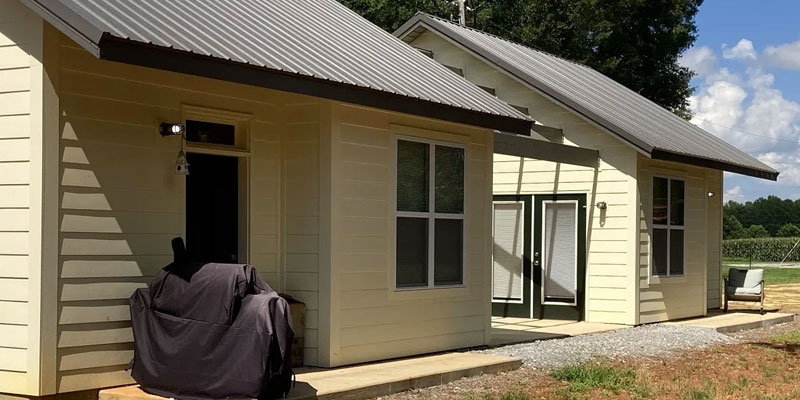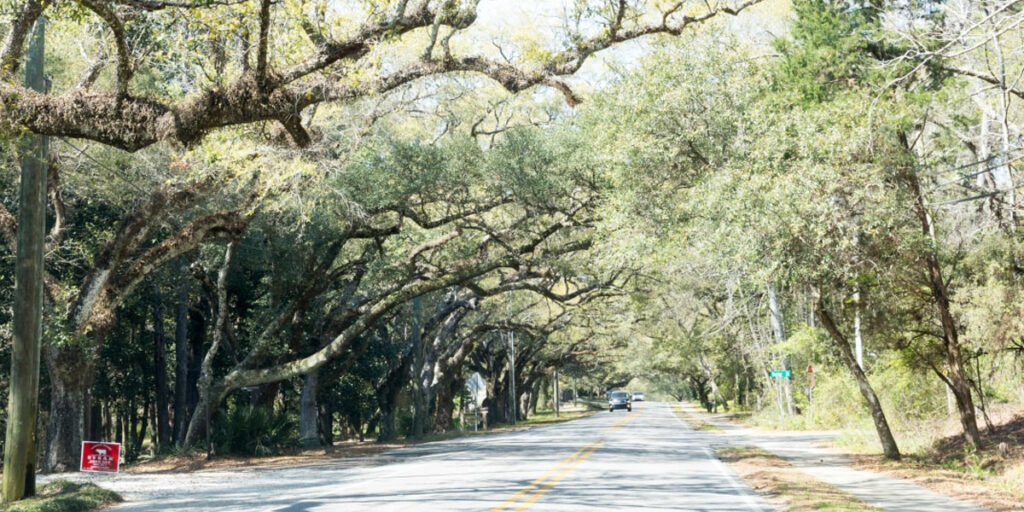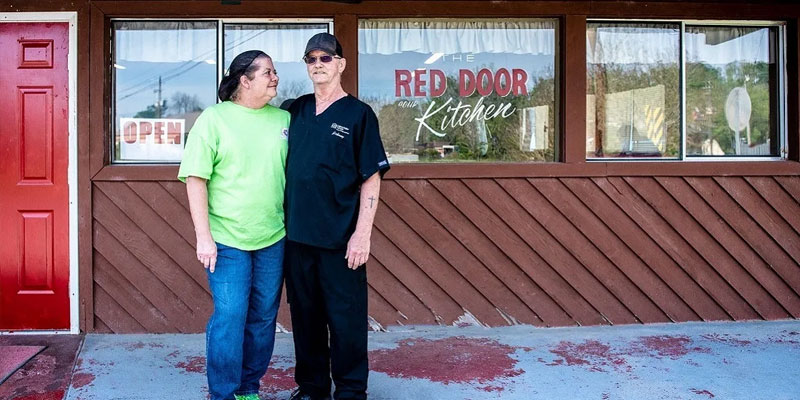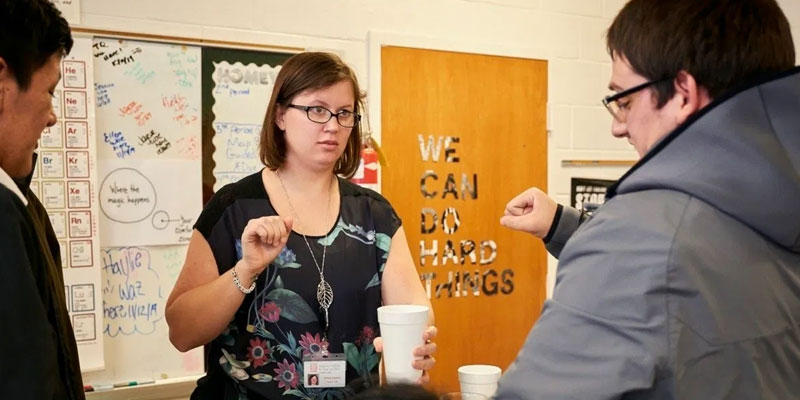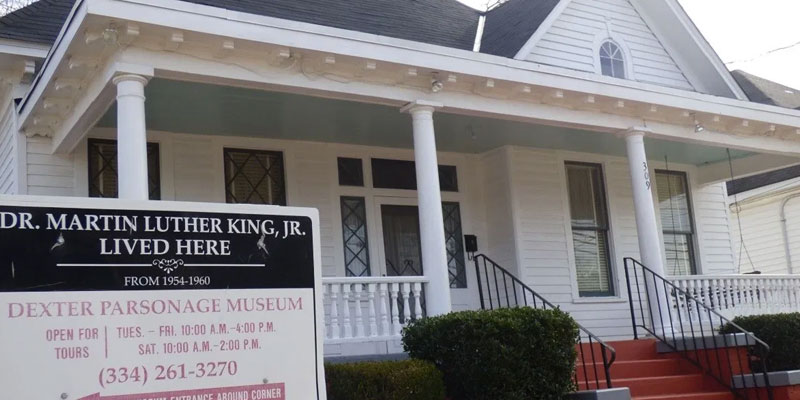Jim Bob Rutlin has come home at last.
Rutlin is one of the first residents of Union Village, an innovative community in Talladega for low-income blind, deaf and deaf-blind individuals.
“It gives me a sense of independence,” said Rutlin, a blind part-time Braille transcriber at the library at the Alabama School for the Deaf. “It says we’re grown, we pay taxes and we can have a place of our own. This is home for good, and I thank God for that every night.”
The Presbyterian Home for Children (PHFC) is partnering with the Alabama Institute for the Deaf and Blind (AIDB) and two Birmingham-based foundations to expand the village, which features affordable, safe, secure and accessible housing for people who are blind, deaf and deaf-blind.
Since 2017, PHFC has owned and operated the village on part of its 80-acre Talladega campus for AIDB consumers. The rental income from the houses goes back to help support PHFC’s programs for homeless children, at-risk teens and young adults, and families in crisis from across Alabama and the Southeast.
Meanwhile, AIDB provides the community’s residents with services including job assistance, transportation, employment opportunities and on-site medical care.
“Union Village is an example of how organizations working together can do something extraordinary,” PHFC President and CEO Doug Marshall said. “There are very few, if any, communities like this in the country. Now more than ever there is a need for safe, secure and affordable housing for low-income men and women who are deaf, blind or deaf-blind. And income from the rentals will help to offset a portion of PHFC’s operating costs to serve children, which is and will always be its core ministry.”
Alabama nonprofits unite to create Union Village for deaf and blind residents from Alabama NewsCenter on Vimeo.
Now, the Daniel Foundation of Alabama and the Independent Presbyterian Church (IPC) Foundation are stepping in to lend a hand and help the village grow. They are donating funds to PHFC to build two additional houses.
“We are excited to partner with these organizations in support of Union Village,” said Maria Kennedy, Daniel Foundation executive director. “Our mission focuses on improving quality of life and meeting basic needs. It’s heartwarming for us to know that we are part of an effort to offer houses that are affordable and designed to meet the specific needs of blind, deaf and deaf-blind people. It’s a win-win for all four organizations.”
IPC Foundation Executive Director Denise Moore said her organization is proud to help these residents step out on their own.
“The IPC Foundation is committed to providing people with hope and the tools to lead full, happy lives through education, medical assistance and safe housing,” she said. “We have a long history of supporting the work of the Presbyterian Home for Children and Alabama Institute for the Deaf and Blind. We are honored to partner with them again to help provide safe, affordable housing and necessary services for the people at Union Village.”
Beth Adams added that the IPC Foundation is excited about this project.
“We are thrilled to be a part of this much-needed program to meet the needs of our blind, deaf and deaf-blind neighbors in Alabama,” said Adams, president of the IPC Foundation board. “The foundation continues to seek partnerships with nonprofits that work to make a critical difference in the lives of Alabamians.”
The all-electric village is a three-phase project, Marshall said. The first phase has been completed and includes five large cottages with 28 residents. Plans are to add 42 tiny duplex-style, accessible homes during the second and third phases.
The first two 475-square-foot houses were built this past fall, one of which is Rutlin’s home. The second two houses are under construction and set to be completed in September.
“The houses are fully compliant with the Americans with Disabilities Act,” Marshall said. “They feature zero-step entry into the house, minimal thresholds, 9-foot ceilings and strategic placement of lighting. They are also very energy efficient, which will help lower power bills.”
Shaded by large oak and pecan trees, the community will eventually include walkways, gardens and picnic areas, making it easy for residents to meet and enjoy the outdoors.
Tamara Kidd, social worker and AIDB Support Housing Program supervisor, said she is thrilled to see this village take shape. A recent survey conducted by the AIDB Regional Centers showed that a significant percentage of AIDB’s consumers were interested in living in this type of community.
“For years, we’ve wanted to have safe, affordable housing for our consumers,” said Kidd, who has worked at AIDB for 16 years. “Finally having a safe community that is affordable and accessible within the city limits is a dream come true for our residents and for AIDB. Safety is the No. 1 priority for our consumers, and the Presbyterian Home for Children has been a blessing to provide that for them.”
Marshall said he is looking forward to the continued expansion of the village.
“It’s pretty amazing that the Lord has put these two very different institutions – PHFC and AIDB – side by side, and now we’re working with two more nonprofits – the Daniel Foundation and IPC Foundation – on something so wonderful,” he said. “This village gives these residents a chance to be independent and all they can be. Together, we’re changing lives.”
(Courtesy of Alabama NewsCenter)




